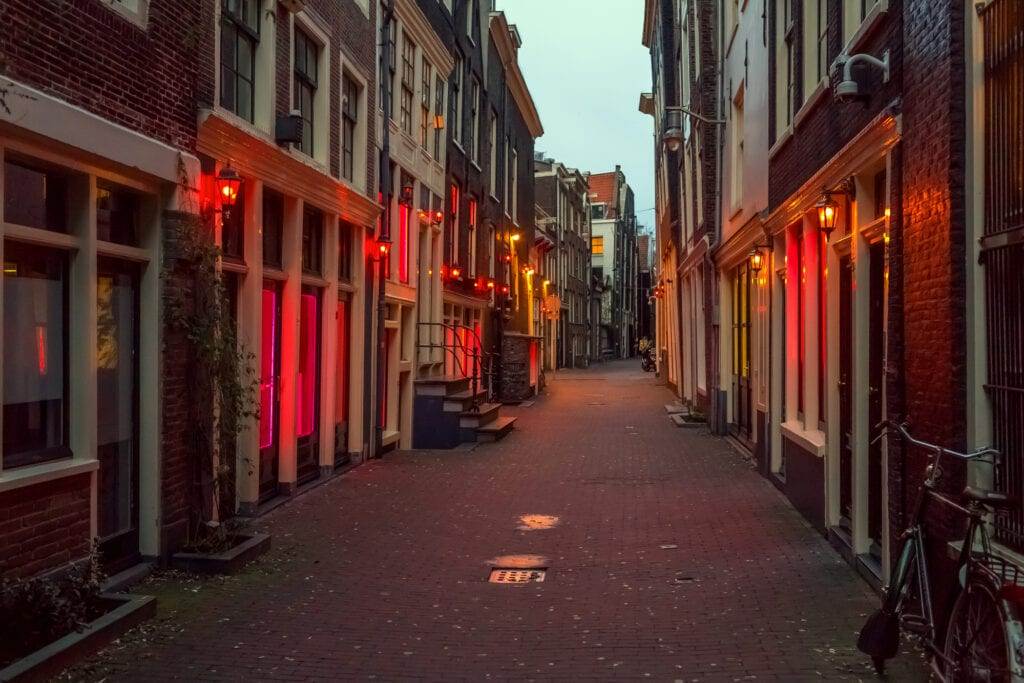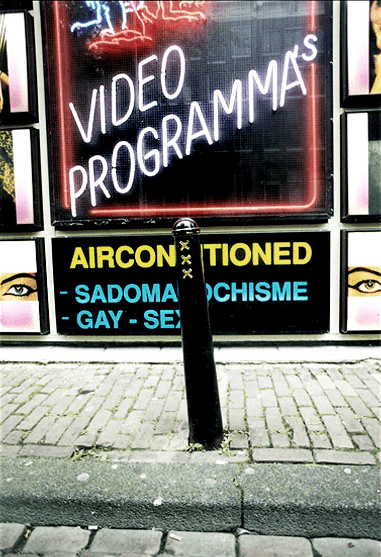When it comes to progressive attitudes around sex, Amsterdam shines as the forerunner of tolerance and pride. Since 1999, the Netherlands has held bragging rights for being the first country to legalise prostitution as sex work and regulate the sex industry with local authorities.
Amsterdam’s Red Light District, also known as De Wallen, has a reputation for being celebratory towards pornography, soft drugs, and prostitution. Instead of criminalising it, the people of Amsterdam embrace the openness and honesty of this infamous (and trendy) hot spot (pun intended 😉).
A different type of window shopping
As with all forms of shopping in the Netherlands (and the rest of the world), the COVID-19 pandemic and resulting regulations have restricted people’s freedom of movement.
Naturally, contact services like hairdressers, pubs, and sports (to name a few) were temporarily closed while governments tried to deal with this unprecedented phenomenon. Coronavirus restrictions impacted all industries but they were especially tough on the sex work business.
Protection of sex workers
Despite what one may think, under normal circumstances, the Red Light District is actually the safest, most well-protected area in Amsterdam. This is not only thanks to the constant police patrol and always-on-duty bodyguards hired by the sex workers but also because window prostitutes are guaranteed medical care and safe working conditions through carefully monitored standards and practices.

Needless to say, tourists and everyone else wanting to ‘satisfy’ their curiosity (again, pun intended) will be pleasantly surprised by this area as a whole, which genuinely does come alive when the sun goes down.
However, even though prostitution is legal and protected in the Netherlands, this does not extend to street prostitution, and sex workers are encouraged to offer their sought-after services from the safety of their buildings.
Contact services during the pandemic
Despite the government’s tolerant and progressive view of prostitution in Amsterdam, many sex workers did not feel like they had enough government support during the months they were prohibited from working.
Regardless of the pandemic, sex workers had to earn a living. With little or no help from authorities, they were forced to continue providing their services illegally. Having been banned from work since early December 2020 along with other contact professions, sex work was moved back into the shadows in which unsafe conditions ensued.
As the allowed in-person contact decreased, the supply of webcam sex increased. However, only those professionals who were able to have a bank account and owned a private room could operate safely without the risk of contracting COVID-19.
Increased violence and human trafficking
Where Dutch sex workers are usually afforded a degree of protection and security, they were at an increased risk of violence from clients under coronavirus restrictions. As sex work was legally restricted during government-mandated lockdowns, fewer bodyguard services and less police protection followed.
On top of this, there was a higher risk of sex workers falling victim to human trafficking — especially as they were increasingly confronted with extreme economic hardship. With their work being banned, calling for help wasn’t really an option either.

A statement made by United Nations Population Fund warned that should the lockdown continue for six more months, an additional 31 million cases of gender-based violence could be expected. Naturally, this would also extend to sex workers.
Although there have been government-funded financial support programmes, many sex workers still fell through the cracks. From what little donations were available to ease the lockdown of person-to-person services, sex workers received only a small allowance to cover their basic needs.
Canalside window booths post-lockdown
Now, after six months of lockdown, the Dutch government has finally eased coronavirus restrictions. It seems that things in the Red Light District are returning to normal as sex workers have been seen back in their canalside window booths since May 19.
Along with the euphoria of lifting lockdowns, opening pubs, and more freedom of movement, the returning workers have positively impacted Amsterdam’s atmosphere.
With the inevitable return of the tourists to De Wallen, sex workers can look forward to returning to normalcy. Hopefully, the Red Light District will again become the thriving area celebrating the progressiveness of Amsterdam.
What’s your opinion on how the government handled the protection of sex workers during the pandemic? Tell us in the comments below!
Feature Image: Clem Onojeghuo/Unsplash
